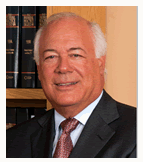If you are reading this chances are you or someone you know has been involved in a crime and it has been labeled a felony or a misdemeanor. This type of legal verbiage can make you feel overwhelmed and confused at a sensitive time in your life. Generally, each state has specific crimes they consider to fall into one of the two categories. It’s best to research current information in the state where the crime was committed. However, the following general information will help you determine the difference between a felony and a misdemeanor.
What’s the difference?
Let’s get right to it, basically, a crime that is punishable by imprisonment in a penitentiary or state prison is considered a felony. A crime that is punishable by less than a year or a full year in a local or county jail is considered a misdemeanor.
How is it decided?
If you have committed a crime, you probably don’t know if it’s considered a felony or misdemeanor. You can conduct an online search to find out the answer but make sure you are gathering information for the state the crime was committed in. If you doubt whether it’s a felony or misdemeanor you can consult with an attorney to confirm the answer.
Usually, you will hear these two words thrown around in court and by your attorney from the beginning of your process. Sometimes, depending on the severity of the crime and if it’s your first offense or not, can help your attorney get you a plea deal for lesser jail time. This type of procedure usually involves pleading guilty and other consequences. However, it can also get your jail time lowered.
An experienced defense attorney will be capable of negotiating a plea deal when necessary. However, this is not always a good answer for every situation. Whether you have been charged with a felony or misdemeanor you need to follow the guidance of your attorney to help provide you with the best outcome for your situation.
If you have been accused of a committing a crime, contact us today for further assistance.
 Roy J. Kahn, with years of legal experience in a wide variety of criminal law, heads a “boutique” firm, which means that your attorney is Roy J.Kahn, not a paralegal. If you have been charged or are about to be charged with a crime—or if you have been contacted to be a witness in a federal grand jury case, you need a qualified defense. You should consult with an attorney immediately and know that you have a right to make no statement until you have consulted with an attorney To contact Mr. Kahn, he can be reached at 305-358-7400.
Roy J. Kahn, with years of legal experience in a wide variety of criminal law, heads a “boutique” firm, which means that your attorney is Roy J.Kahn, not a paralegal. If you have been charged or are about to be charged with a crime—or if you have been contacted to be a witness in a federal grand jury case, you need a qualified defense. You should consult with an attorney immediately and know that you have a right to make no statement until you have consulted with an attorney To contact Mr. Kahn, he can be reached at 305-358-7400.


Recent Comments